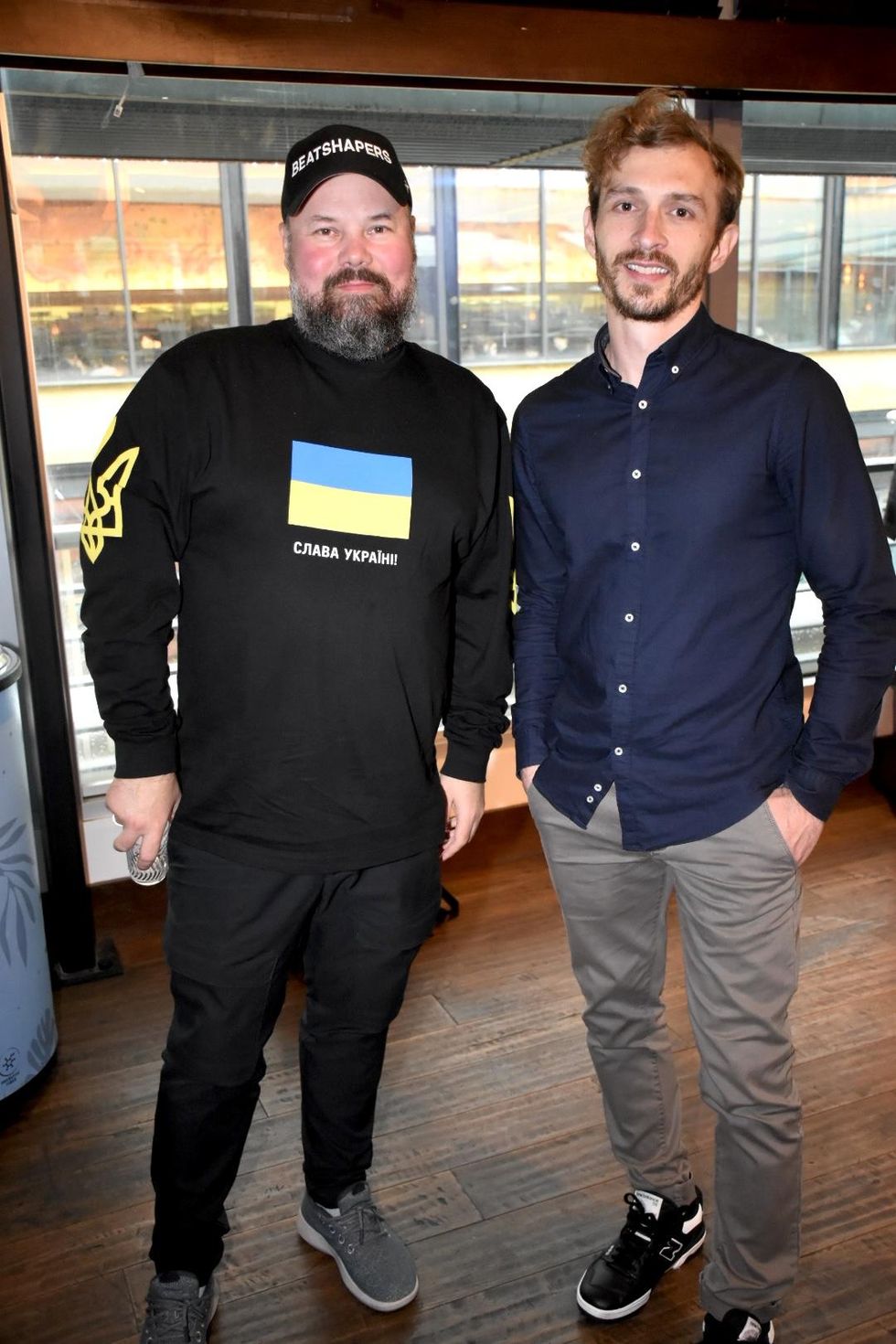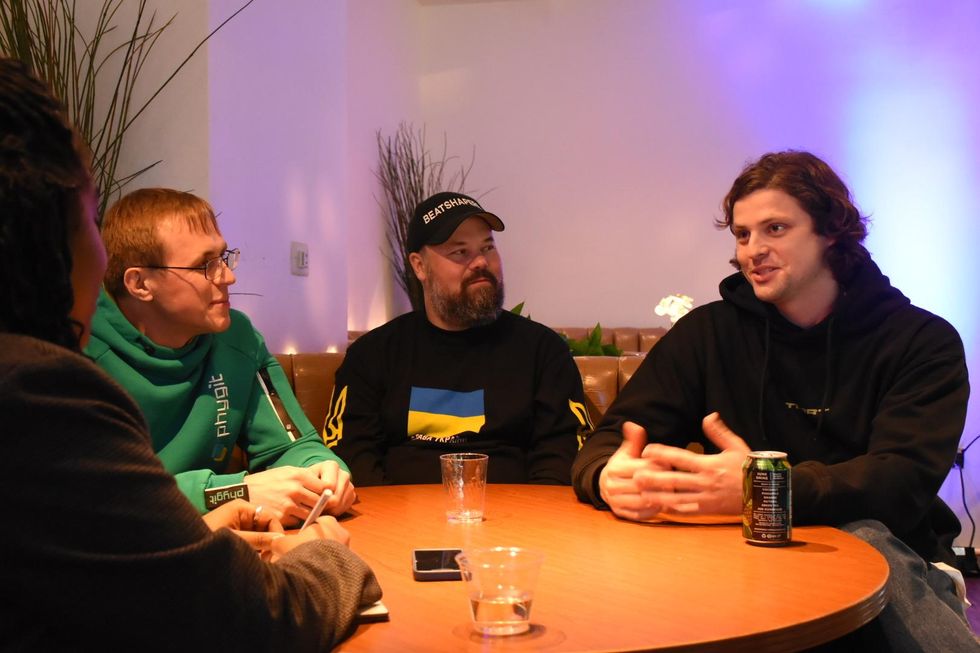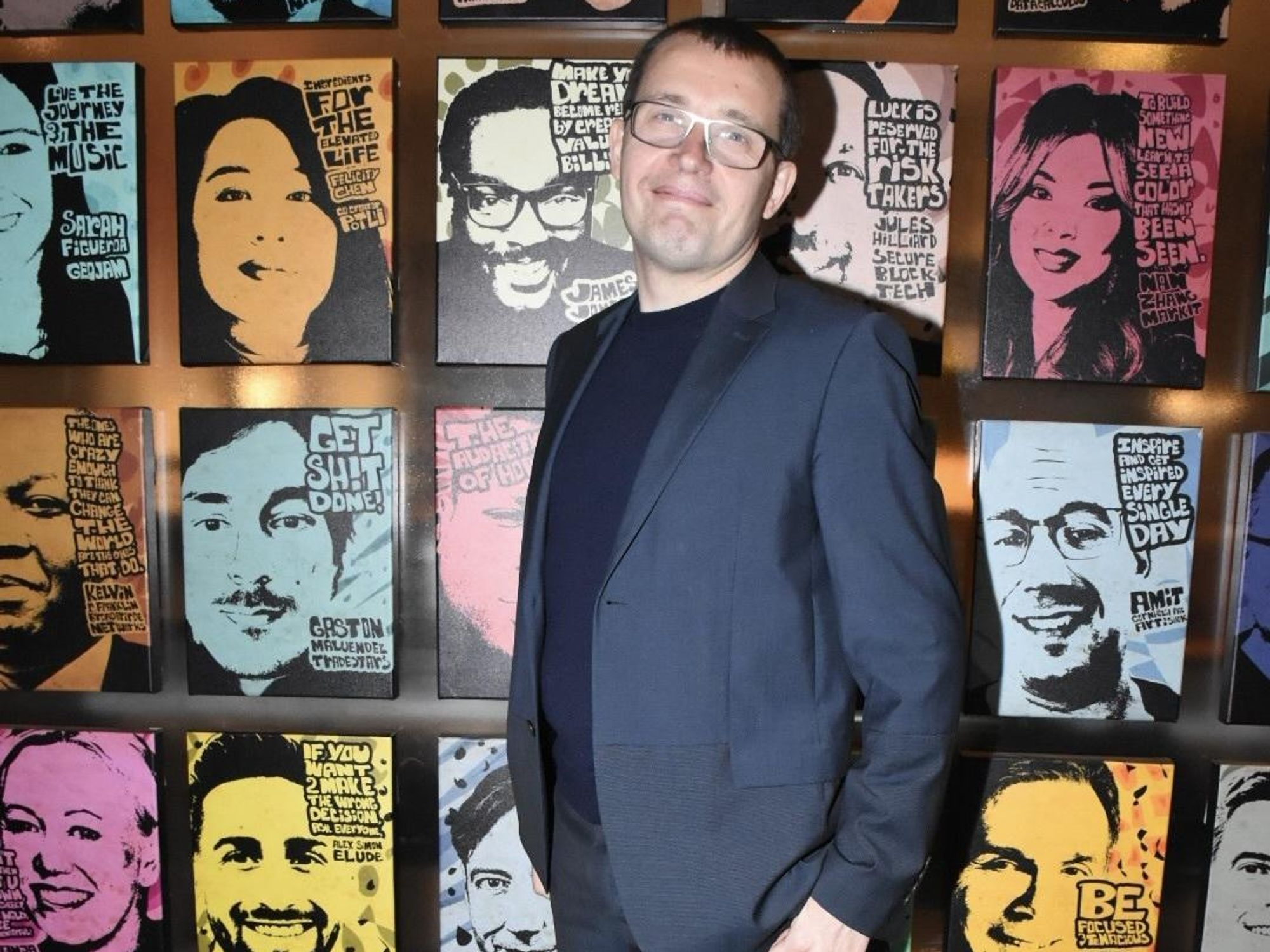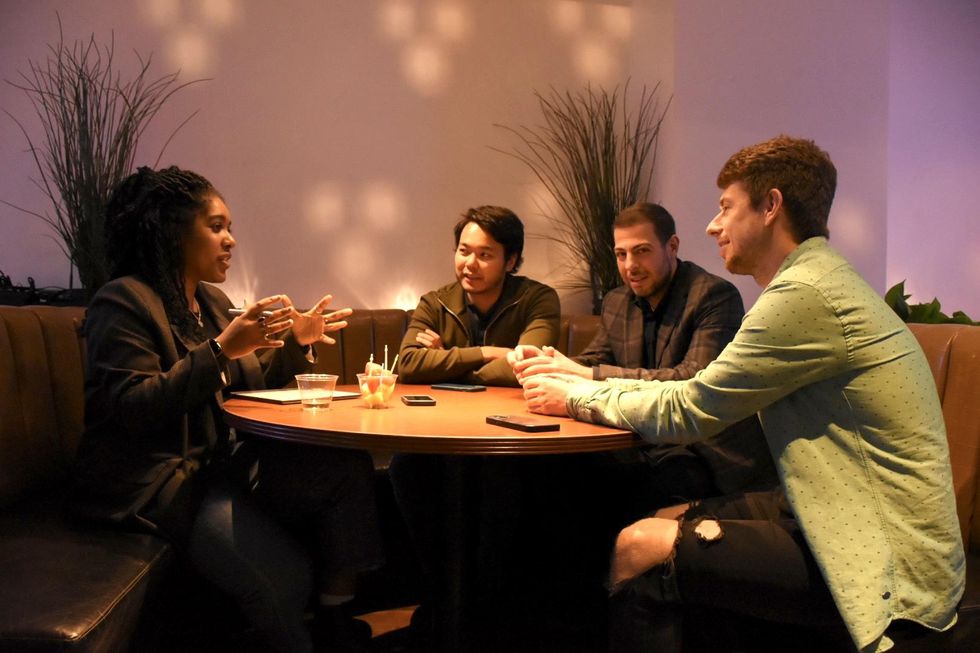Collide Capital’s Aaron Samuels on Creating Blavity Media for Black Millennials and Gen Z
On this episode of the LA Venture podcast, Collide Capital founder and managing partner Aaron Samuels discusses the importance of storytelling and talks about how his career journey led him to venture capital.
Collide Capital is a venture capital firm that just closed its first seed stage fund of $66 million. The fund is focused on investing in intersectional founders.
“We primarily look at three main buckets,” Samuels said. “We look at enterprise SaaS, we look at the regenerative economy and we look at Gen Z.”
Samuels says that working as a scout for Lightspeed, Canaan, Pear VC and Flybridge gave him and his partner Brian Hollins the start that they needed for Collide Fund I. He also has many Silicon Valley funds as LPs.
“I think that because of that actual LP relationship, it just makes the conversation a little bit more fluid for sharing deals,” Samuels said. “Many of these funds will invest up until the Series B and several of them even at a later stage. So because we are focused primarily on seed and a little bit of pre-seed, oftentimes, we can find deals a little bit earlier in the pipeline and then we share our top performers with those funds.”
Prior to starting Collide with Brian Hollins, Samuels served as a strategy consultant for Bain & Co. — the only Black employee in his cohort, the cohort above him, and the cohort below him. Coming from his undergraduate at Washington University, he was no stranger to existing in predominantly white spaces. But in school, he had a strong community he could turn to.
“Washington University in St. Louis is also a primarily white institution,” he said. “But the Black community there was very strong…It represented the total cacophony of all of the conversations that were happening in the Black community and that experience of sitting there seeing other Black people having them move toward one another and actually support each other, we call that Black gravity, or ‘blavity’ for short.”
Samuels said that when he and his friends found themselves in primarily white corporate spaces years later, they longed for that same sense of community.
“We started asking ourselves, is there a way that we can replicate that feeling that we had as undergrads to the rest of the world?” he said.
The lack of diversity and color in these corporate spaces inspired Samuels to create Blavity, the largest global Black media company for millennials and Gen-Z.
Samuels launched the company in 2014 and said it was bootstrapped up until they reached their millionth user. It was at that point when Blavity started gaining interest from VC funds.
Unfortunately, Black founders are still underfunded and underrepresented today. That’s why Samuels feels it’s important for Collide and Blavity to be in these spaces and to help drive change.
“The reality is the numbers have not been increasing for the number of Black founders that are getting invested into,” Samuels said. “Despite all of the media and all the attention that is being called to it.”
He added, “I do believe that there are rooms that things happen in that I’m not yet invited to,” he said. “But what I can also say is that the communities that I am a part of are really most of the underrepresented people in VC — Black people in venture, women in venture, latin folks in venture, queer folks in venture — There’s not a lot of us so we have to look out.”
In addition to his role as a venture capitalist and founder, Samuels is also a recognized spoken word artist. As someone who grew up in relatively radical activist spaces, Samuels understands the importance of storytelling and that’s why he held writing workshops for youth.
“I think it’s actually a pretty natural conclusion,” Samuels said. “I started as an artist because as a young, angsty teen that was learning about racism for the first time. I think it made me mad… But I think part of the anger also comes from an inability to do anything about it and you feel so powerless…and I think that the older I’ve gotten, the more I’ve observed the power that I do have to potentially make change.”
While Samuels is a VC, he still finds ways to implement the use of storytelling in his current role by sharing his knowledge with the founders in Collide’s portfolio.
“A lot of founders struggle with this [storytelling], especially founders that come from a more technical background,” he said. “It's not just about the numbers. In fact, it rarely is. It's about the story that you're telling. VCs are pretty smart, they're pretty savvy, they can see through if somebody's trying to tell them a lie.”
Samuels is a believer that the best endings to a story are both surprising yet inevitable. As a VC, his advice for founders is similar.
“Meaning you want to look at this pitch and say this is happening,” he said. “If this person doesn't create this technology or this company, somebody else will and the world is definitely moving in this way…And I think if you can create a pitch that leaves people with those two dual emotions, at the end of it, it can really, really, really strike a chord in the heartstrings of the person who's listening.”
dot.LA Reporter Decerry Donato contributed to this post.
Click the link above to hear the full episode, and subscribe to LA Venture on Apple Podcasts, Stitcher, Spotify or wherever you get your podcasts.
This podcast is produced by L.A. Venture. The views and opinions expressed in the show are those of the speakers and do not necessarily reflect those of dot.LA or its newsroom.
- Column: 'Employ Black People. Fund Black Entrepreneurs. Do SOMEthing' ›
- LA Venture: Act One Ventures' Alejandro Guerrero on Bringing More Diversity to Venture Capital ›
- LA Venture: Notation Capital's Nick Chirls On Why ‘Too Early’ Startups Make Great Investments ›
- LA Venture: Touchdown Ventures Partner Beth Kearns on ‘Corporate Innovation’ ›
- LA Tech Week: Greentech Startups To Watch - dot.LA ›


 Alexey Menshikov -Beatshapers, Oleksandr Gamaniuk -
Alexey Menshikov -Beatshapers, Oleksandr Gamaniuk - Pavlo Shlapak - Phygit, Alexey Menshikov -Beatshapers, Vlad Klimchuk TLPRT Joey Mota
Pavlo Shlapak - Phygit, Alexey Menshikov -Beatshapers, Vlad Klimchuk TLPRT Joey Mota  Ivan Kovpak, Primeclass founderJoey Mota
Ivan Kovpak, Primeclass founderJoey Mota  Omar Zhandarbekuly, Yevgen Arutyunyan - AEV charging, Oleksyy Malytskyy - Go SotaJoey Mota
Omar Zhandarbekuly, Yevgen Arutyunyan - AEV charging, Oleksyy Malytskyy - Go SotaJoey Mota